Apple iPhone & Apple iPod with iOS 7 (IMAP)
 | This article contains instructions for an outdated version of iOS. Instructions for the latest version are available at: |
To configure iPhone or iPod to receive and send email using our servers over IMAP and SMTP, you can follow the steps below. In this manual we are using example domain name and email address, so please make sure to replace:
 | username@domain-name-example.com with your email address domain-name-example.com with your domain name |
1. On your iPhone's home screen, tap Settings.
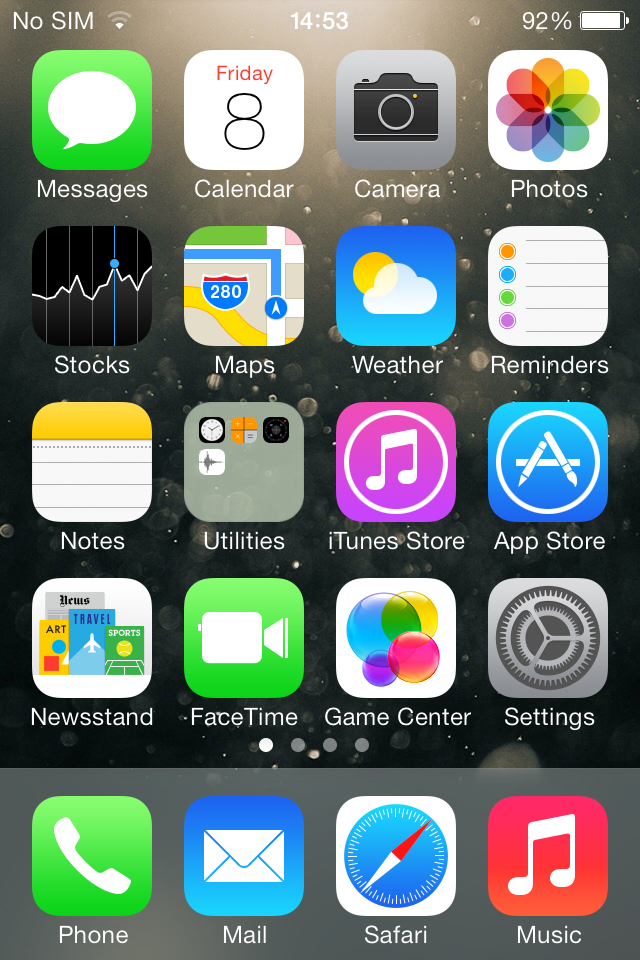
2. Scroll down and tap Mail, Contacts, Calendars.
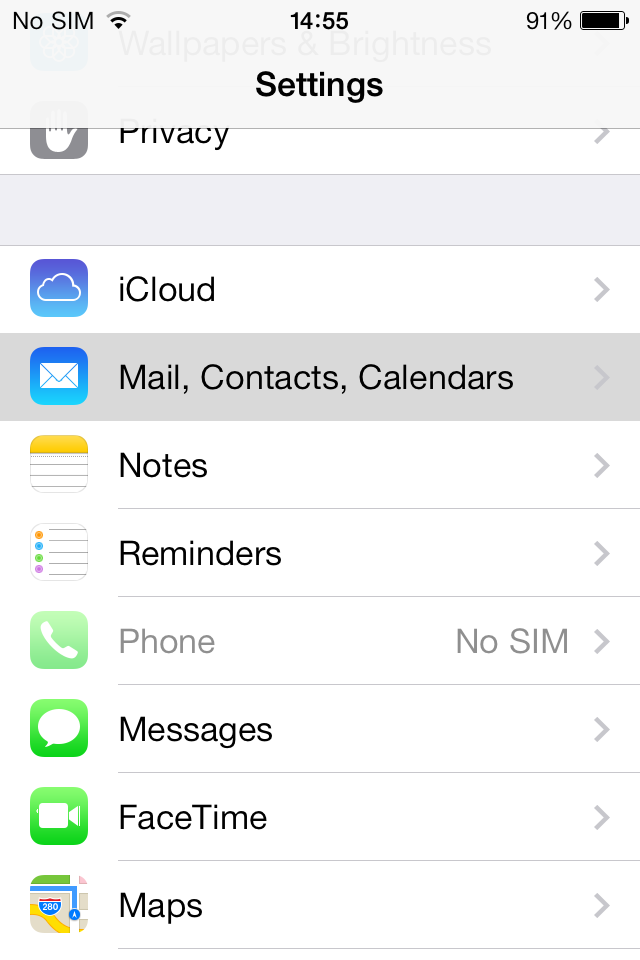
3. Tap Add Account.
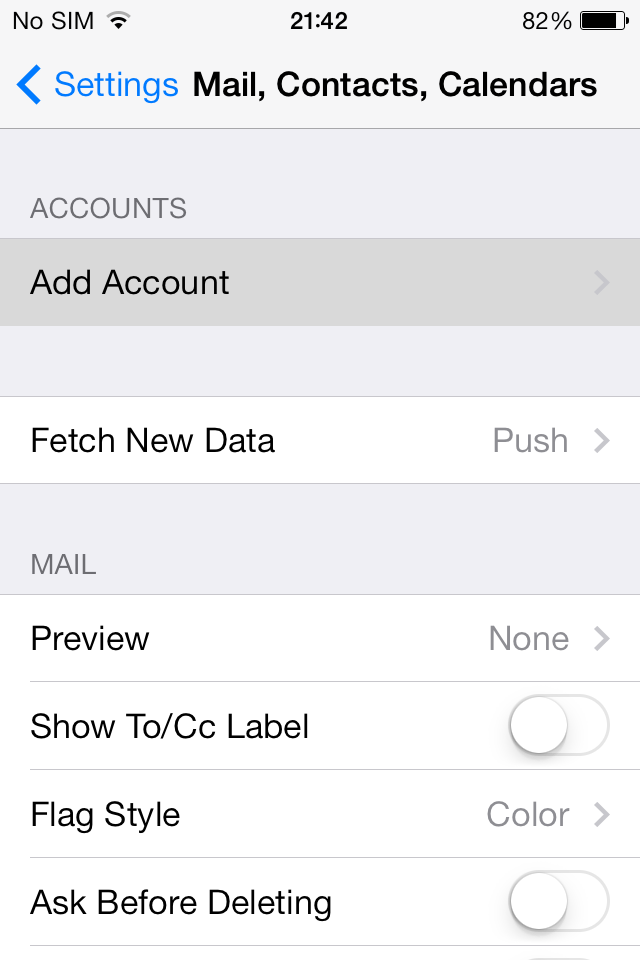
4. Tap Other -> Add Mail Account.
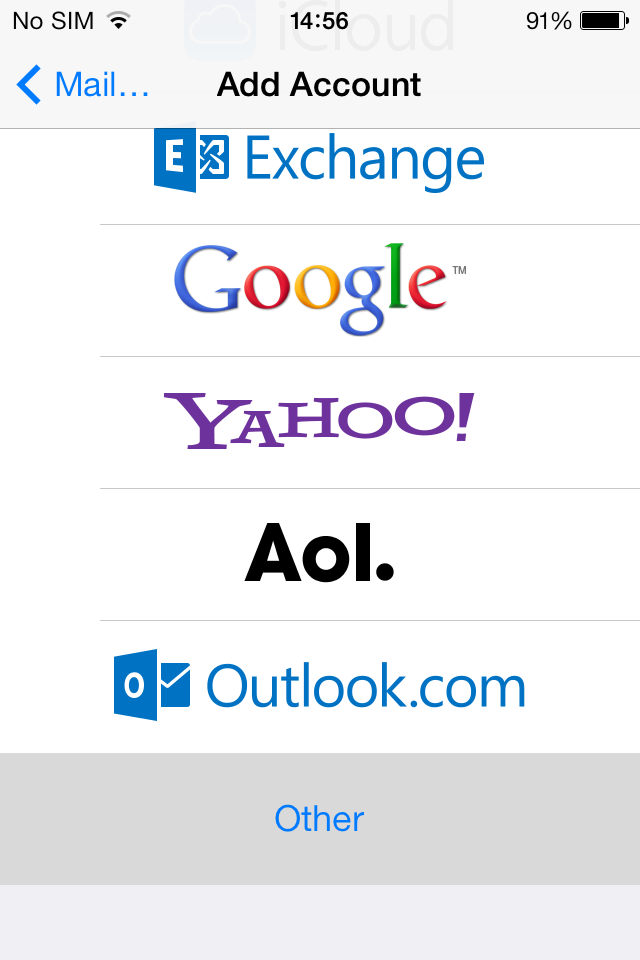
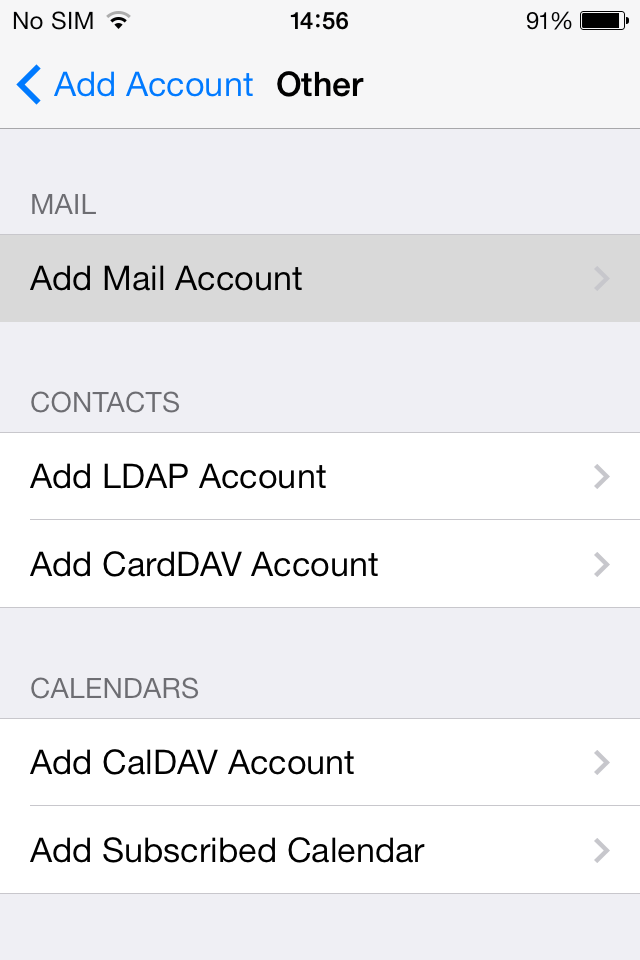
5. In the Name field you should enter the name that would appear on the messages you send.
Enter username@domain-name-example.com in the Email field.
In the Password field you need to enter the current password for this particular mailbox.
In the Description field you need to add a short description of your account in your e-mail client. This name would show up only in your own mail program. You can set a name such as "Work Account", "Sales mail" or your name, for example.
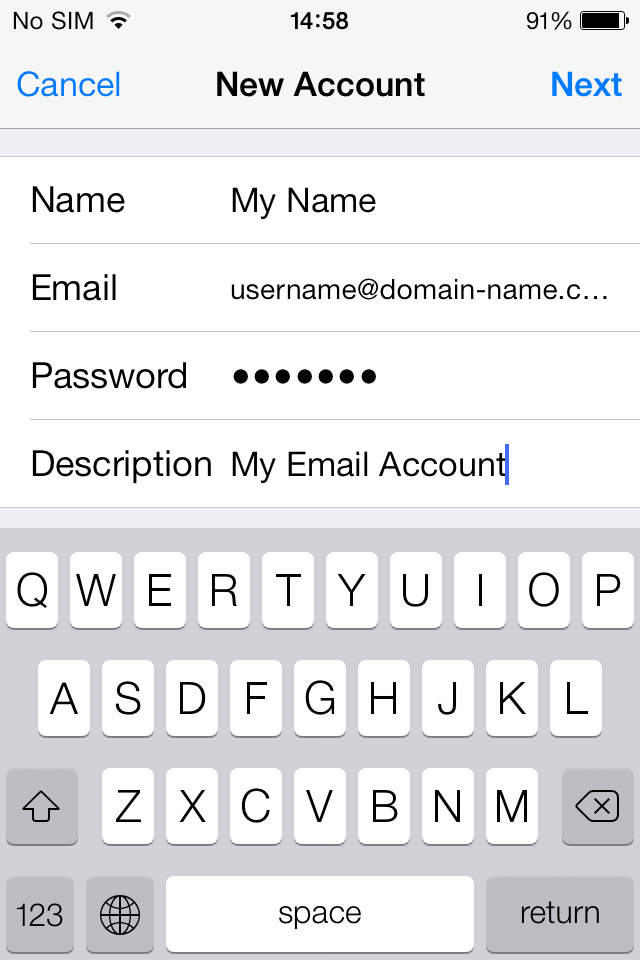
Tap the Next button.
6. Tap IMAP.
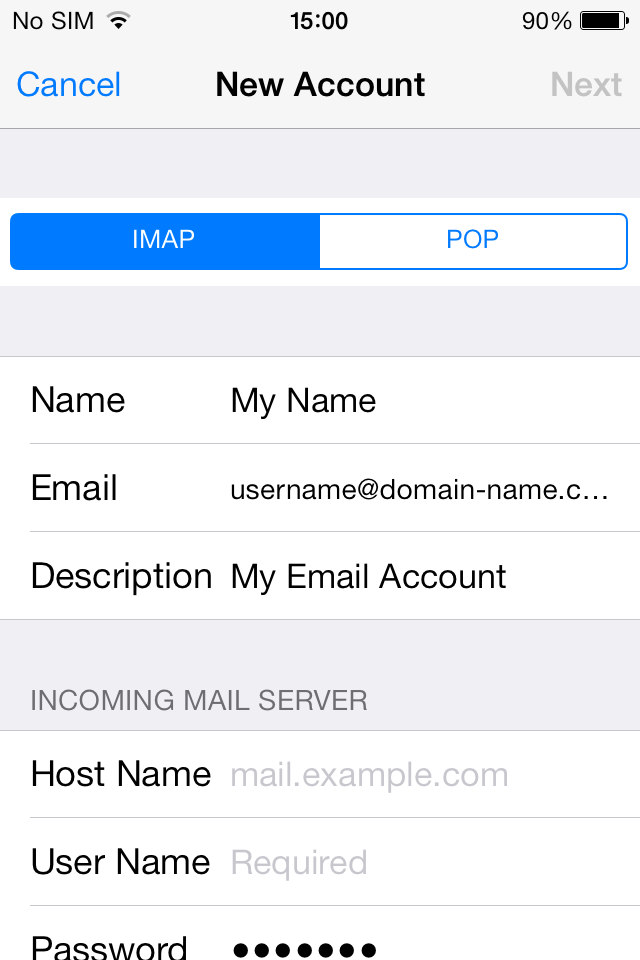
7. For Host Name in the Incoming Mail Server section use mail.domain-name-example.com (replace domain-name-example.com with your domain name).
Enter username@domain-name-example.com in the User name field (replace username@domain-name-example.com with your email address).
The Password field should be filled in for you from the previous screen.
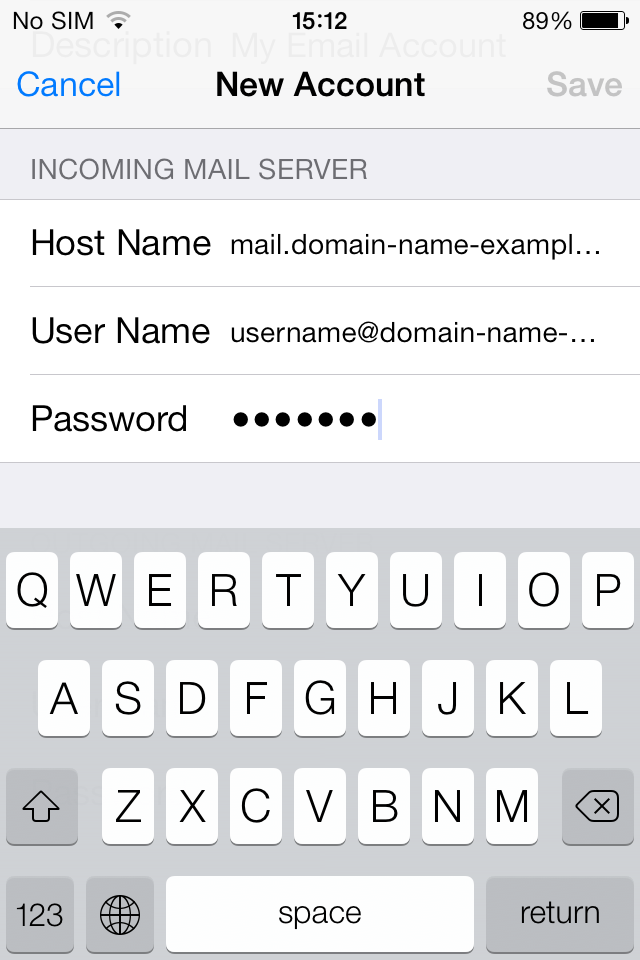
8. Scroll to the Outgoing Mail Server section.
Tap the Host Name field and type in mail.domain-name-example.com (replace domain-name-example.com with your domain name).
Enter username@domain-name-example.com in the User Name field (replace username@domain-name-example.com with your email address).
In the Password field enter the current password for this particular mailbox.
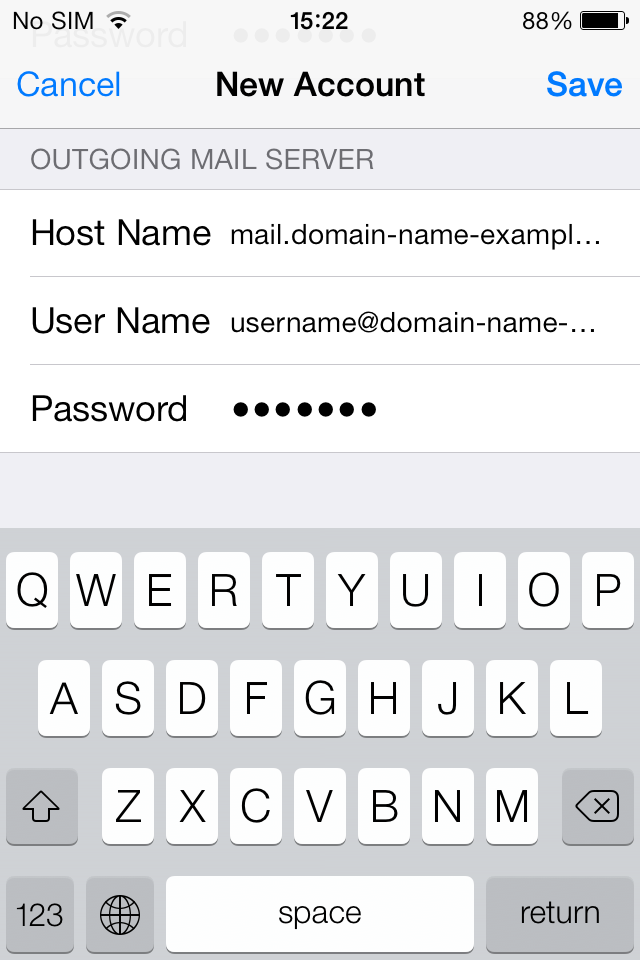
Tap the Next button at the top of the screen.
9. Mail will verify your settings by connecting to the server. You will need to have an active Internet connection for that.
At this point, you may receive a warning stating that Mail Cannot Verify Server Identity - tap Cancel, and then tap Yes if asked whether you want to continue setting up the account without SSL.
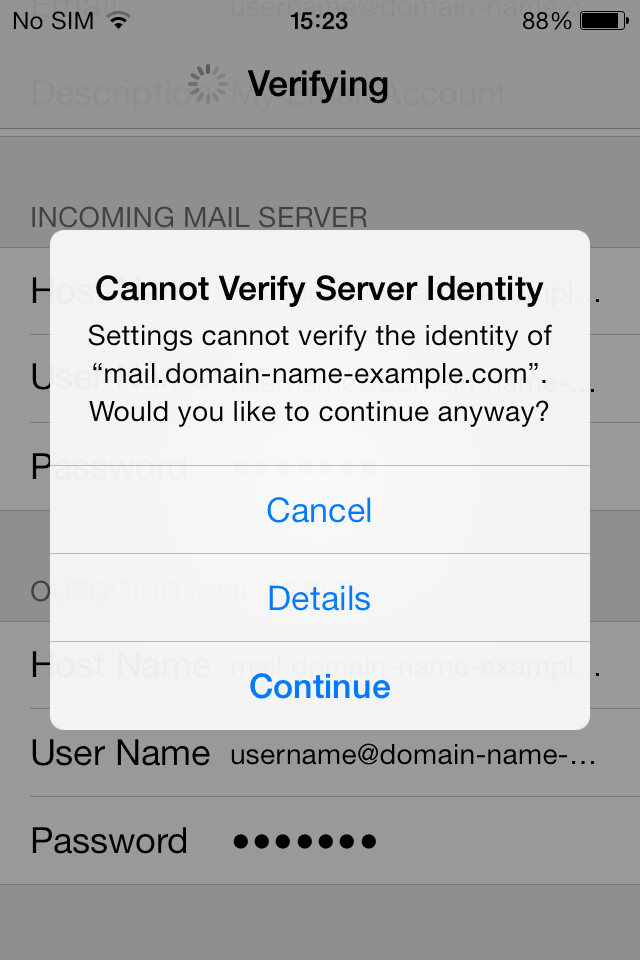
10. Your device will show the IMAP screen next. Make sure Mail is set to ON.
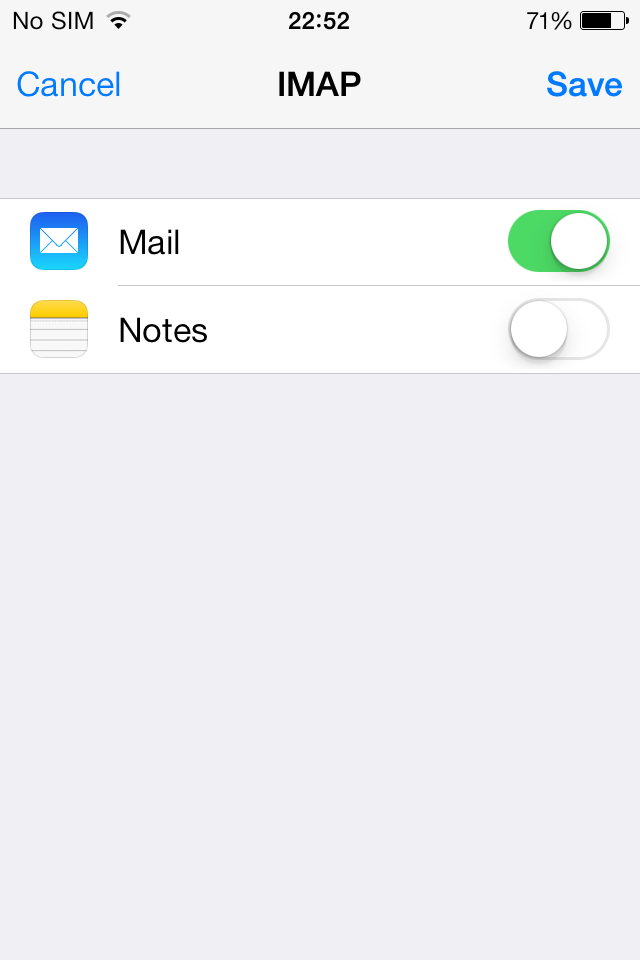
Tap on the Save button.
11. Tap your account under Accounts.
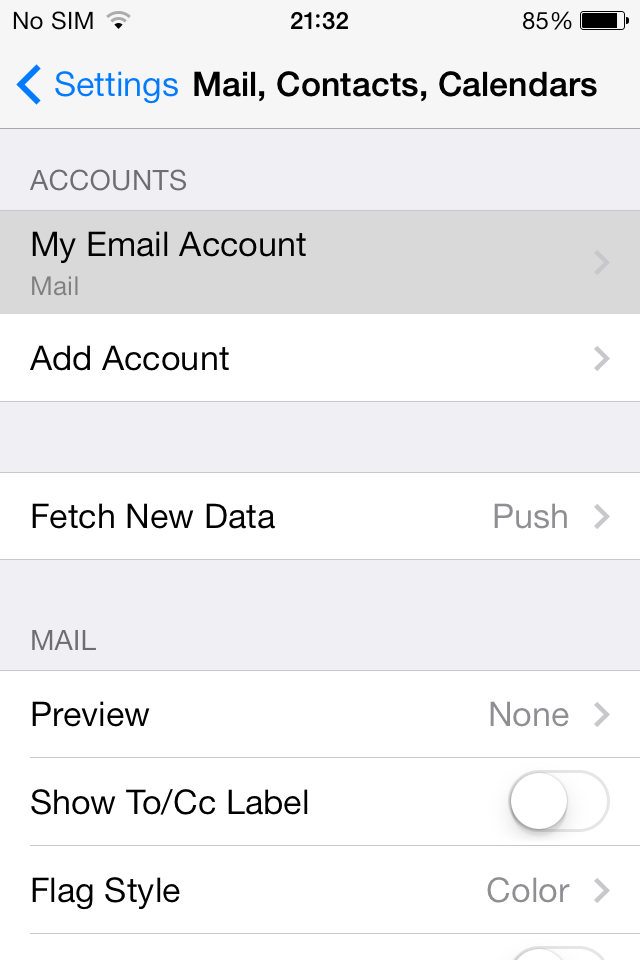
12. Tap on your account on the next screen as well (under the IMAP section).
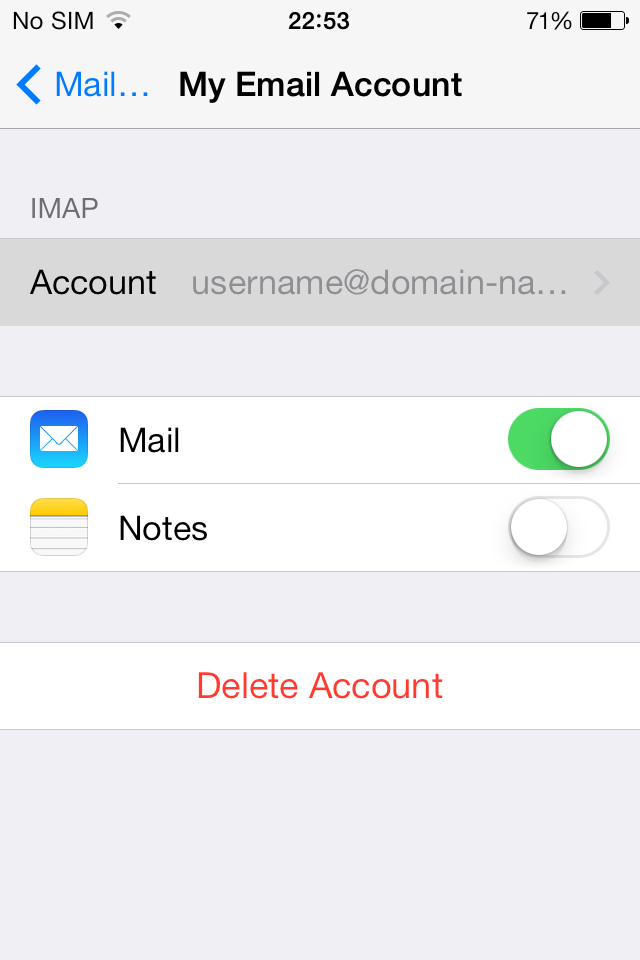
13. Scroll to the bottom of the screen and tap on the SMTP setting.
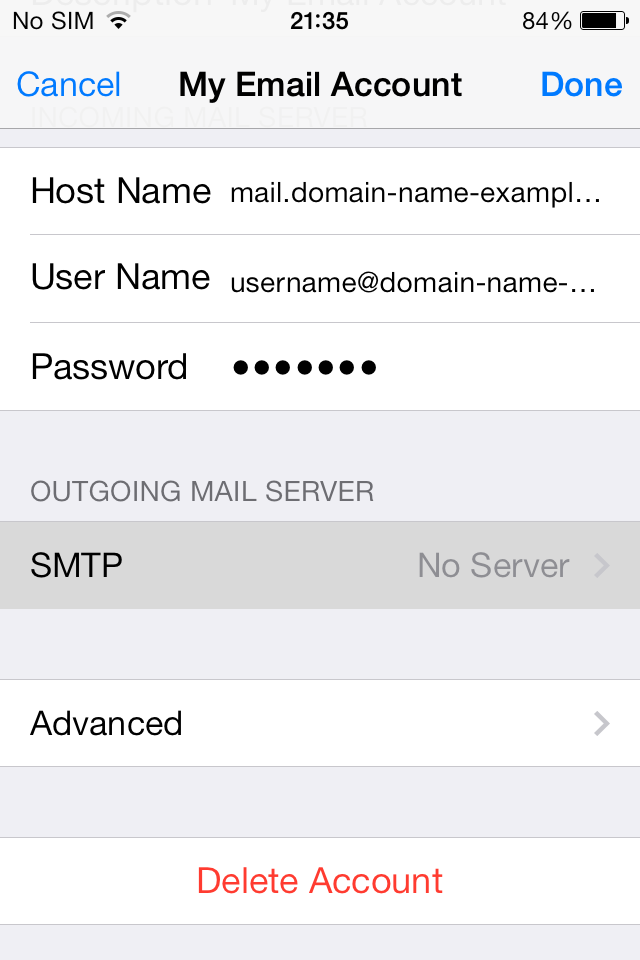
14. Under Primary Server tap mail.domain-name-example.com.
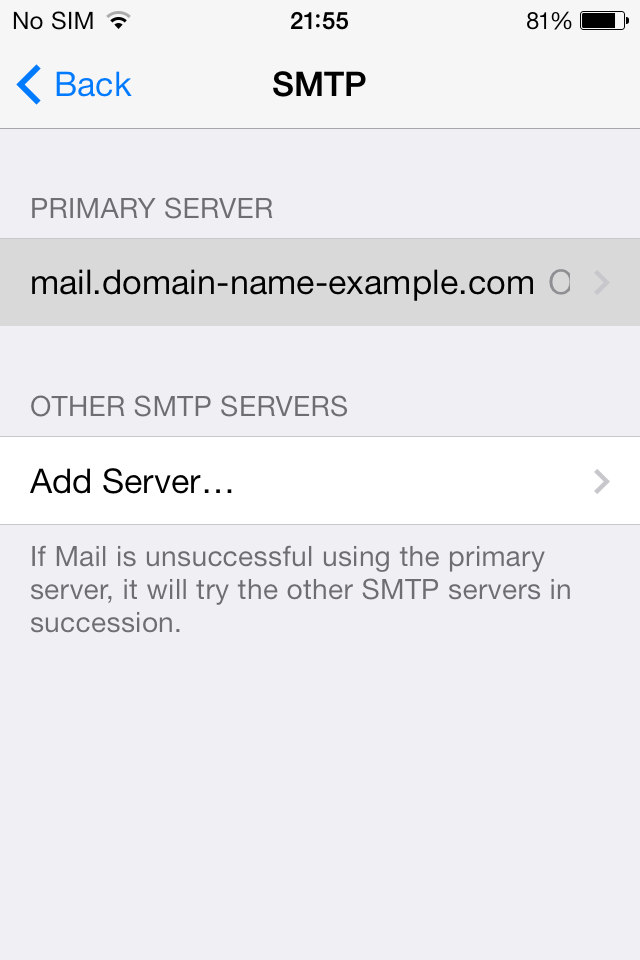
15. Make sure that Use SSL is set to OFF and that Server Port is set to 587.
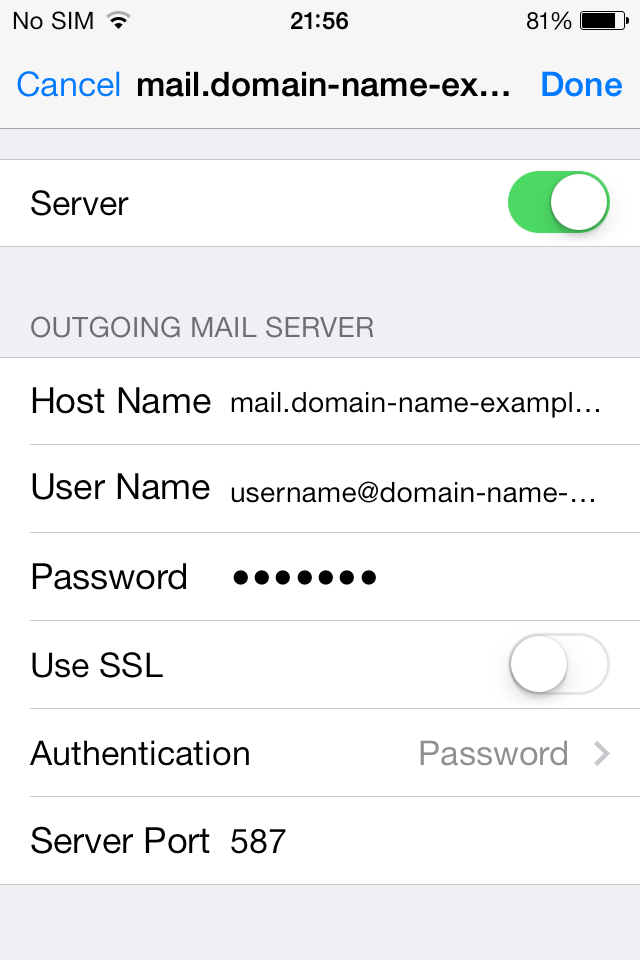
Tap on the Done button.
Tap on the back arrow button at the top of the page.
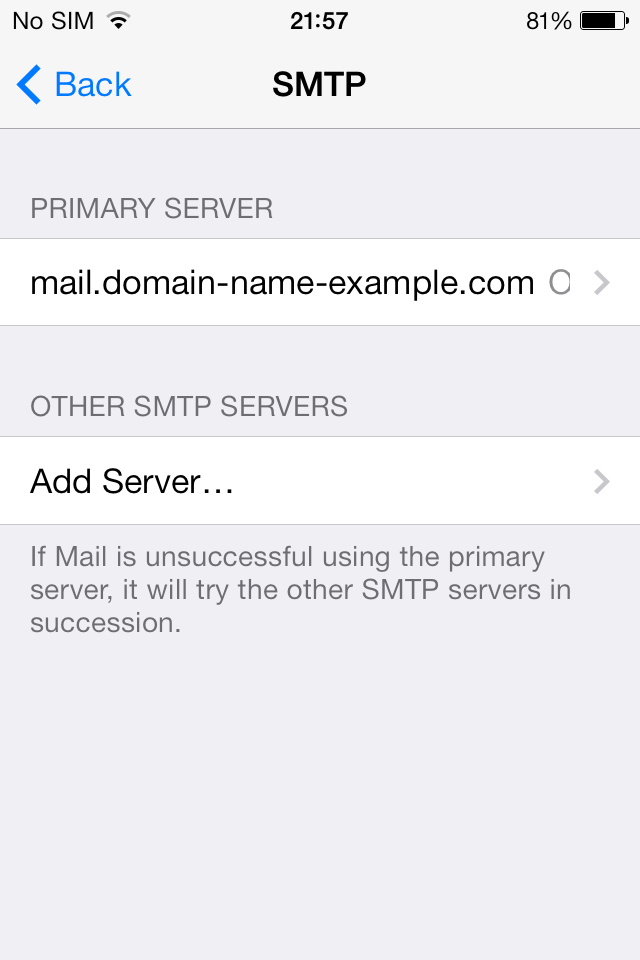
16. Tap Advanced.
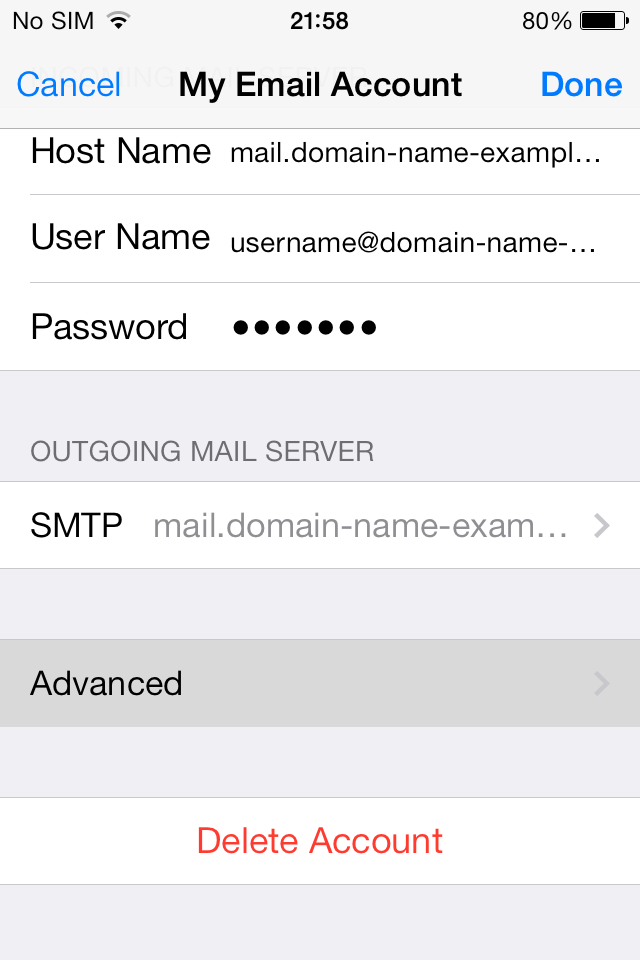
17. Scroll down and make sure that Use SSL is set to OFF, and that the Server Port is 143. Type INBOX (all caps) for IMAP Path Prefix.
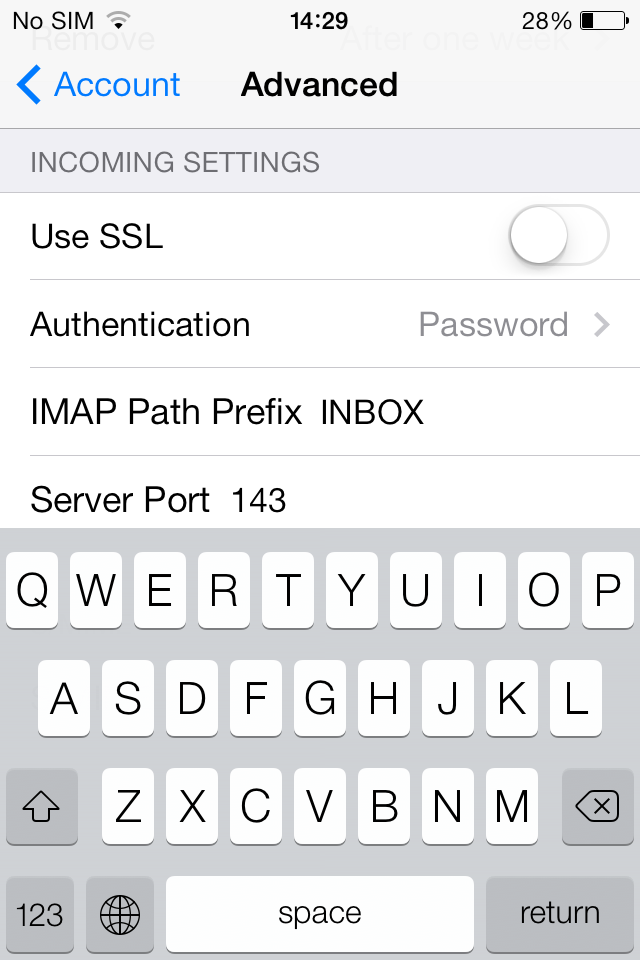
18. While on this screen, scroll back up to the Mailbox Behaviors list. From here, you can configure Mail to synchronize its Drafts, Sent and Deleted mailboxes with the corresponding IMAP folders on the server. To do so, tap on the folder that you would like to configure. On the following screen, tap on the desired folder on the server.
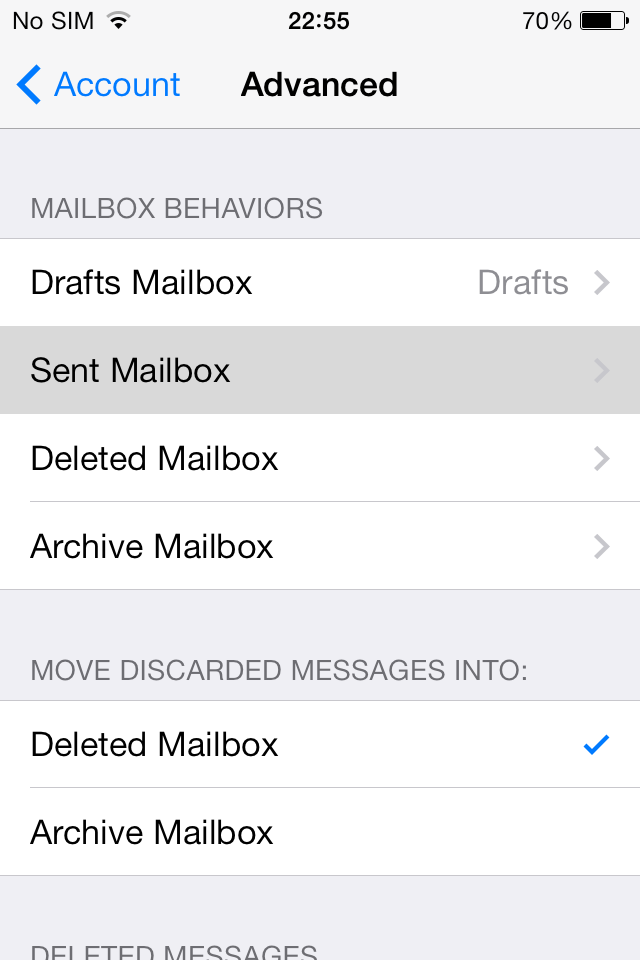
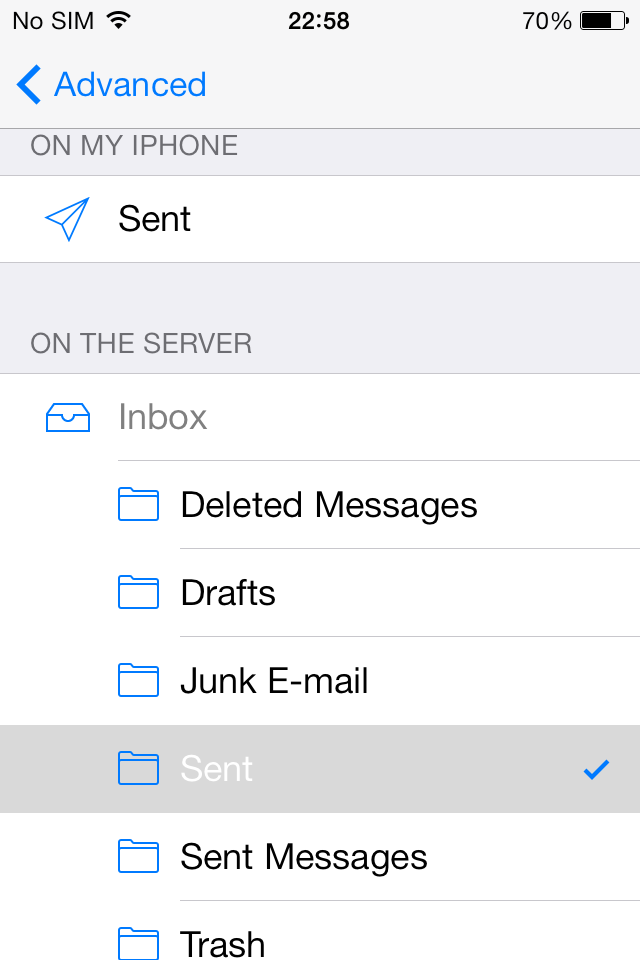
Tap the back arrow at the top left corner of the screen to return to the previous screen, then tap on the Done button there. Your email account is now successfully configured.
You can add additional e-mail accounts by repeating the same procedure.